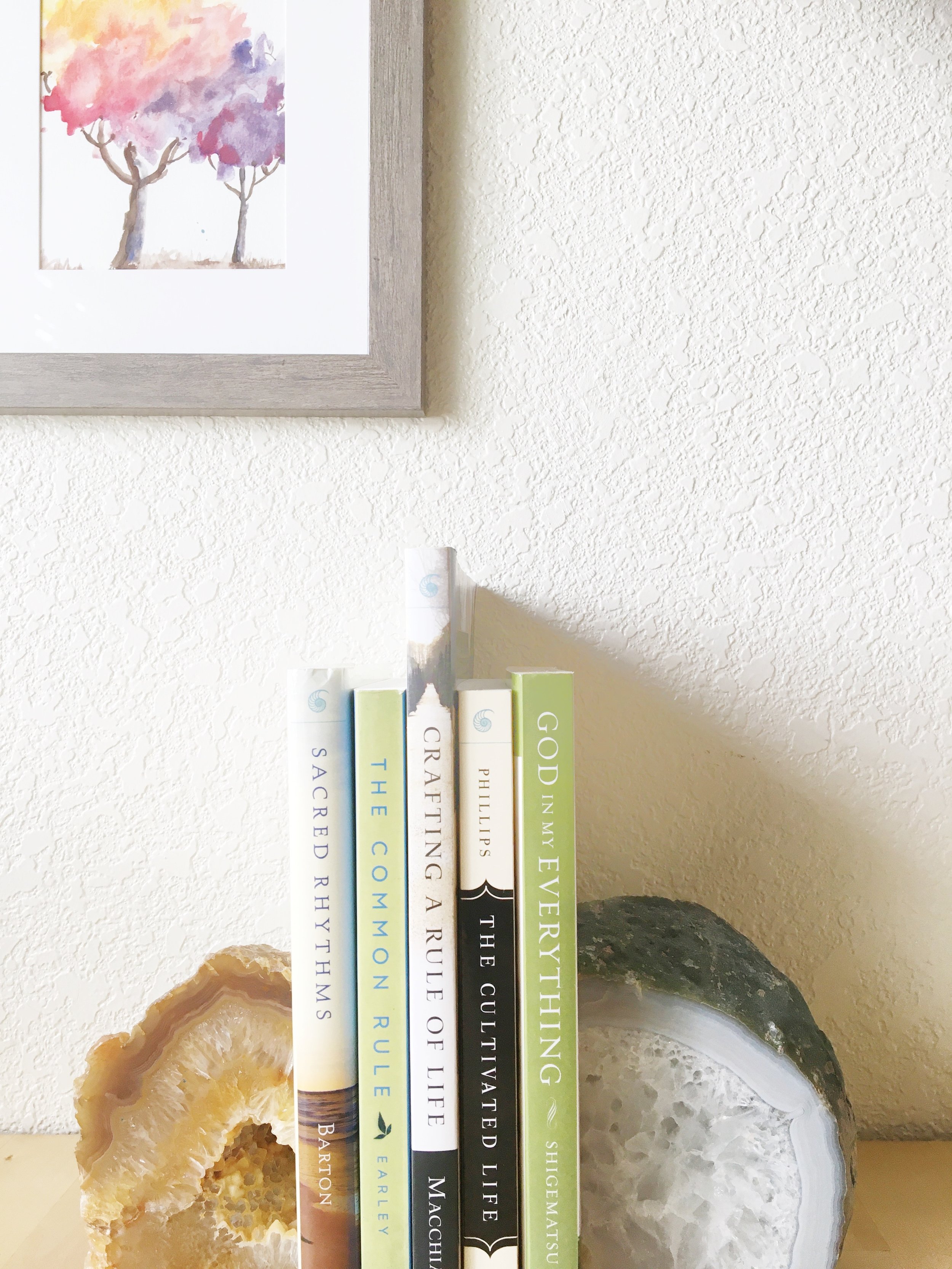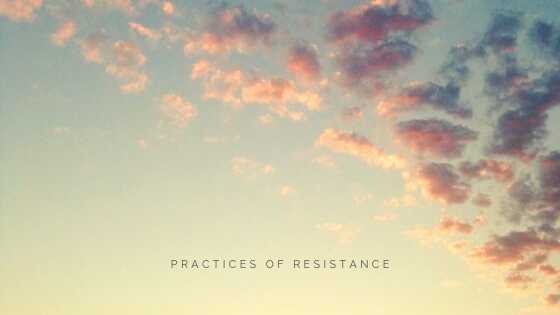
Rule of Life Book recs
Five of our favorite resources to accompany you as you craft your own Rule of Life

Practices of Resistance: Making Space to Experience God’s Presence
As we continue along in our Rule of Life series and explore spiritual practices that we can integrate into our daily and weekly rhythms, I wanted to introduce a few practices that have been particularly meaningful for both of us in this season. These three practices are specifically geared towards helping us to discern how our use of technology affects our souls:
Turning our phones off for one hour every day.
Reading scripture before looking at our phones when we wake up.
Limiting media intake to a few hours a week.
All three are straight out of Justin Whitmel Earley’s The Common Rule, and he categorizes them as “practices of resistance” because they help us to become aware of how our habits are shaping and forming us, and how we can intentionally resist any habits or messages that are forming us into something other than the image of Christ. He writes,
"Our world is full of a thousand invisible habits of fear, anger, anxiety, and envy that we unconsciously and consciously adopt. Should we do nothing, we will be taught to love the very things that tear us apart. So we must take up the fight, open our eyes to the way media form us in fear and hate, the way screens form us in absence, and see the way excess and laziness train us to love ourselves above all else. But remember that resistance has a purpose: love. The habits of resistance aren’t supposed to shield you from the world but to turn you toward it. They aren’t so you can feel good about you’ve done for you. They exist so you can feel peace about what God has done for you” (The Common Rule, 25).

Sabbath Rest
We live in a culture that equates busyness with significance. We’re defined by what we do, so we avoid the Sabbath because we don’t want to acknowledge our limits as human beings. We’re constantly attempting to prove our worth to ourselves and to others. I’m struck by Eugene Peterson’s observations about two underlying narratives behind our busyness:
“I’m busy because I am vain. I want to appear important.”
“I am busy because I am lazy. I indolently let others decide what I will do instead of resolutely deciding myself” (The Contemplative Pastor).
Ouch. Stopping our “doing” would mean facing something we’re perpetually trying to avoid—feeling insignificant, unseen, or unimportant. Susan Phillips quotes one of her directees in The Cultivated Life: “I fear stopping because then I will feel regret for the emptiness of my days.” Double ouch.

Rule of Life: An Intro to a Lifelong Spiritual Practice
I was first introduced to the concept of a “rule of life” when I was in seminary. I was taking a week-long intensive course on “Spiritual Traditions and Practices,” and one of our assignments was to write our own rule of life for the following six months. In my ambition, I crafted a list of daily, weekly, and monthly spiritual practices that I thought would impress my professor, from reading all of C.S. Lewis’ collected works to watercolor painting every week, to praying a psalm a day. Then real life happened, and I’m not sure I looked at again, even once.
The word “rule” may not sound all that appealing—especially when it’s attached to the words “OF LIFE.” Does writing one mean I have to follow every single practice for the rest of my days?
Well, if you’re anything like me, then there’s some good news: the word “rule” isn’t referring to set of near-impossible expectations or standards to uphold at all! Rather, a rule of life is simply a curated set of intentional practices and rhythms that cultivate attentiveness to God in this specific season of your life.
